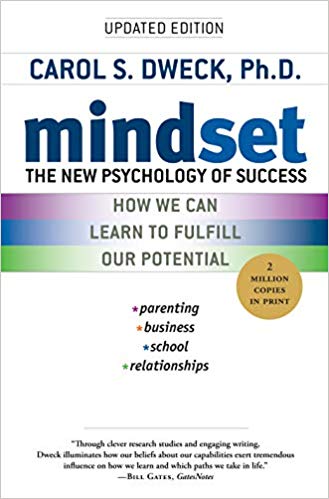

This article is an excerpt from the Shortform summary of "Mindset" by Carol Dweck. Shortform has the world's best summaries of books you should be reading.
Like this article? Sign up for a free trial here .
What’s the secret to maintaining a healthy relationship? If it’s not working, should you end it?
We’ll cover why having a growth mindset can help you maintain a healthy relationship and shore it up when it falters. We’ll also cover some of the most common roadblocks to healthy relationships.
Keys to Maintaining a Healthy Relationship
Whether you have a fixed or growth mindset affects the course of your personal relationships. Understanding your mindset, and that of your partner, is key to maintaining a healthy relationship. Mindset helps explain:
- Why people work against their own interests in relationships
- Why relationships devolve into warfare
- Why some relationships succeed and others don’t
Fixed mindset: When you have a fixed mindset, you believe your abilities are unchangeable. You were born with certain traits and a certain amount of intelligence and that’s that. Many people are trained in this mindset from an early age — for instance, by a teacher who believes your IQ determines everything: You’re either smart or you’re dumb; you can learn or you can’t. When you view your abilities as unchangeable, you feel you must constantly prove yourself. If people get a set amount of intelligence, you want to prove you have a lot, although you secretly worry you were shortchanged.
Growth mindset: When you have a growth mindset, you believe the abilities you’re born with are a starting point. You can get smarter and grow with hard work, persistence, and the right learning strategies. You have a passion for learning, welcome mistakes as opportunities to learn, and seek challenges so you can stretch.
The two different mindsets lead to different sets of thoughts and actions, and two different paths. They dictate people’s aspirations; how they see success, failure, and effort; and what that means in school, sports, work, and relationships. Knowing your own mindset is the first step toward maintaining a healthy relationship.
In healthy relationships, partners are on the same side, not competing or battling constantly. They develop the skills to handle differences — both partners grow and the relationship grows. Each helps the other achieve and become the person they want to be.
For example, Laura encouraged Jack in his plans to start a business, and Jack encouraged Laura to pursue her dream of writing a children’s book. When they were first married, Laura was prone to yelling and being defensive, but Jack didn’t take it personally and helped her learn to handle things constructively. A relationship is an opportunity for two people to help each other grow. This mindset is the secret to maintaining a healthy relationship.
Mindsets That Hurt Your Relationship
The following beliefs are common, but they’re absolutely detrimental to a relationship. Change the way you think to achieve your goal of maintaining a healthy relationship.
Unhealthy Belief: Your Partner Can Read Your Mind
People with fixed mindsets believe partners should be so in sync that they can read each other’s minds. Of course, this is impossible. No one is a mind reader. To maintain a healthy relationship, you need to communicate, not try to read minds. It’s easy to misinterpret what the other person says or means.
For instance, when the author’s partner asked for more space, she thought he was talking about changing or ending the relationship. But he only wanted more room where they were sitting.
Unhealthy Belief: Problems Equal Character Flaws
Those with fixed mindsets see problems as a sign of a character flaw. When conflicts occur, they look for something to blame — often their partner’s personality. They can become angry and disgusted with their partner, an attitude they extend to the whole relationship. Since they believe traits are set in stone, the problem is unsolvable. Or, to avoid believing the relationship can’t be fixed, they may deny problems instead.
Some people keep dating one person after another because they’re trying to find the perfect person. For instance, one woman a the study, Penelope, dated a string of men but always broke up when she discovered what she considered to be a flaw, such as watching too much television. These flaws were small things that could have been addressed with tolerance or communication, but she preferred to move on because she believed there was someone out there who was already perfect.
Everyone has flaws or things that look like flaws to us. Problems are normal occurrences in relationships. To maintain a healthy relationship, accept flaws — they believe a person or relationship can still be good without being perfect. They also believe people can grow.
For example, after a special prosecutor uncovered Bill Clinton’s relationship with an intern, which he had lied about to his wife, Hillary Clinton had to decide whether his lying was a fixed trait or whether he could improve with help and commitment. She believed he could change and they went to counseling one full day a week for a year.
Unhealthy Belief: Your Relationship Should Be Magic
People with fixed mindsets believe that if two people are right for each other, their relationship should always be smooth sailing. Compatibility means everything should come naturally and you shouldn’t have to work on your relationship. If you have troubles, then the relationship wasn’t meant to be. (Relationship experts say this is one of the most harmful beliefs you can have in a relationship.)
In contrast, the growth-minded view is that they’ll work together to learn relationship skills, solve problems, and grow. Success comes from work and commitment, not magic. This is the secret of maintaining a healthy relationship.
Grow Your Mindset: Tips for Maintaining a Healthy Relationship
- After a rejection, do you feel an urge to get revenge, or would you rather learn from what went wrong in the relationship and move on? Think of a past rejection and try to look at it with a growth mindset. What did you learn from it that could help you improve a future relationship?
- When a problem of conflict comes up in your relationship, do you react by blaming the other person? Create a fictional character with a name and blame him instead. Then think about what you can do rather than whom to blame.
Maintaining a healthy relationship is hard work, but when you approach your relationship and your partner with a growth mindset, you’re much likelier to have a happy relationship.
———End of Preview———

Like what you just read? Read the rest of the world's best summary of "Mindset" at Shortform . Learn the book's critical concepts in 20 minutes or less .
Here's what you'll find in our full Mindset summary :
- The difference between a growth and a fixed mindset
- How a fixed mindset keeps you back throughout your life: education, relationships, and career
- The 7 key ways to build a growth mindset for yourself






